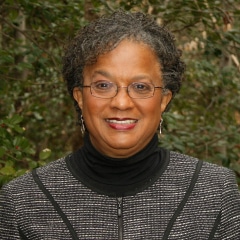Jacqueline Irvine

Member Since: 2007
Jacqueline Jordan Irvine is Charles Howard Candler Professor of Urban Education Emerita in the Division of Educational Studies at Emory University. Professor Irvine’s specialization is in multicultural education and urban teacher education, particularly the education of African American students. Her books include Black Students and School Failure (Greenwood),Growing Up African American in Catholic Schools (Teachers College Press), Critical Knowledge for Diverse Students (AACTE), Culturally Responsive Lesson Planning for Elementary and Middle Grades (McGraw-Hill), In Search of Wholeness: African American Teachers and Their Culturally Specific Pedagogy (Palgrave Publishers), and Educating Teachers for Diversity: Seeing with the Cultural Eye (Teachers College Press). Black Students and School Failure received the Outstanding Writing Award from The American Association of Colleges of Teacher Education and was selected as a Outstanding Academic Book by the American Association of College and University Research Librarians. In addition, she has published numerous articles and book chapters. She has received the Distinguished Career Award from the SIG on Black Education of the American Education Research Association, an award from the Association for Supervision and Curriculum Development for exemplary contributions to the education of African American children, the 2000 Dewitt-Wallace/AERA Lecture Award, the 2001 AACTE Hunt Lecture, and the 2003 AACTE Lindsey Award for Distinguished Research in Teacher Education. At Emory University’s 2000 Commencement ceremony, Professor Irvine received the Thomas Jefferson Award, the highest award given to an Emory University faculty member for service and research. A renowned educator, in 2004 Professor Irvine received the prestigious Crystal Apple Award for Excellence in Graduate Teaching. At the 2005 meeting of the American Educational Research Association, she was presented AERA’s Social Justice in Education Award for her efforts to advance social justice through education research.
